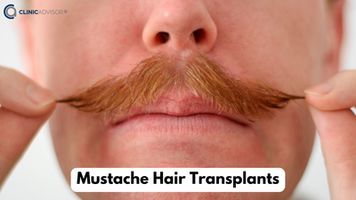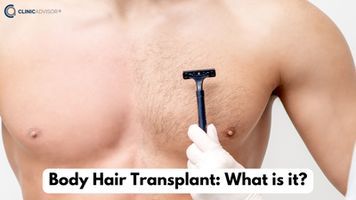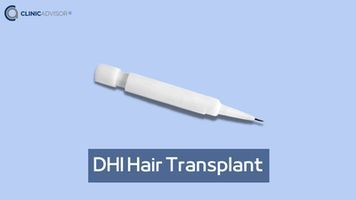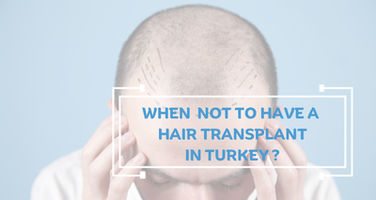For some men, a thick beard is a symbol of manhood and strength, while for others it may be a mandatory requirement in their religion. It is also a fashion among many young men to have a beard.
Even though a person may take good care of their appearance and consume a healthy diet, beard baldness or unevenness can be an issue.
Hair thinning on your beard could be a result of genetic hair growth patterns or could be due to a scar, trauma, or stress-induced hair loss.
And the simple solution to this problem can be beard hair transplant surgery that alleviates bald patches or totally bald beard, creating a full healthy beard or even a well-shaped goatee.
Thickening up facial hair with a beard transplant is a popular procedure that can work wonders.
Thickening the facial hair through a hair transplant makes it possible to grow and maintain sideburns and a grooming beard giving a very masculine appearance.
FUE Beard Transplant treatment procedure is available at Expert Hair Transplant in Turkey.
How Does Beard Transplant Work?
The Follicular Unit Extraction (FUE) method, as utilized for hair transplants, is also used in beard hair transplants.
FUE Beard Transplant technique is a non-invasive method used to move hair follicles from the donor area (usually in the back of the head) and implant them to the face in areas of the beard which needs thickness or in men who don't have a beard at all.

This technique can take between three and nine hours depending upon the range treated and the number of follicles required.
For example, some men may require 1500 follicles to densify their beard while a full facial hair transplant may require up to 4500 follicles.
An FUE Beard Transplant is a one-day outpatient surgery at Expert Hair Transplant and allows minimal downtime post-surgery.
If you are traveling to Turkey from abroad to get your beard hair transplant, you should plan to stay at least three nights in Istanbul to allow for the full treatment including a post-surgery check-up.
 Extraction of hair follicles from the donor area
Extraction of hair follicles from the donor area
How long do beard transplants last?
A beard transplant operation will last anywhere between 3 to 9 hours. This depends largely on the number of hair grafts necessary for each patient. Beard transplant results are meant to last for a lifetime.
The transplanted hair will never fall if the procedure is performed correctly.
Beard transplant cost
The cost of beard transplantation is more expensive than hair transplantation, and the cost may vary in western countries according to the region to be transplanted.
Where it ranges between $3000-$7000 if there are a few gaps. But if the entire beard is transplanted, the cost may reach up to $12,000-$15,000.
While beard transplants in Turkey cost between $1750-2500 at reliable clinics that have high expertise.
Who can get a beard and mustache transplant?
There are some cases that are suitable for a beard transplant, such as:
- People who suffer from thinning beard hair or a beard that doesn't grow naturally.
- The donor area behind the head should be good and thick enough to allow hair follicles to be extracted.
- The person should be in good health and free of any chronic, infectious, and skin diseases.
- Not be less than 20 years old.
The pros and cons of beard and mustache transplant
One of the most important benefits that drive men to undergo beard transplantation is their desire to have a thick beard.
Especially in recent years, where thick beards have become popular among men and young people and a sign of beauty.
The process also helps to fill in the patches in places where hair doesn't grow, either for natural reasons or due to hair loss cases such as alopecia.
As for the cons of beard transplantation, it is actually not very different from head hair transplantation.
For example, there is a possibility of infection or inflammation in either the donor or transplanted area. These side effects are not very common, but they are likely to occur.
To reduce these risks, the clinic must be chosen carefully and adhere to the instructions for hygiene and post-operative care.
In addition, to avoid the risks of a beard transplant or unnatural hair growth, you should choose a doctor and a clinic with high experience in this field.
This is because the beard area is sensitive, especially since it is in the face, and any error that may affect deformities may be difficult to treat.
This type of operation requires high professionalism and accuracy in work to give the best possible results.
When will the side effects of beard implants disappear?
The side effects of a beard transplant are the same as a head hair transplant. They include facial swelling, scaling, redness, and numbness for a while.
These side effects usually disappear within 10-14 days. But the redness may last for a month and gradually disappear over time.
Does a beard transplant really work?
Beard restoration surgery can completely alter the appearance of your face, giving it a more contoured line and a fuller, more neatly shaved look.
Starting four weeks after the surgery, the transplanted hair will fall. But fear not, this is a necessary phase in the regrowth process.
At around three months post-transplant the hair starts to grow again and never falls again. However, the full results of the operation are only determined after one year after the transplant.
How painful is a beard transplant?
Beard hair transplants are performed under local sedation. This means, that after the initial anesthesia injection, the patient will not feel anything.
At Expert Hair Transplant, we strive to make the experience as comfortable as possible so we apply pain-free anesthesia for people who have fear of needles (see image below).
In addition, we give patients some relaxing and soothing medications through the IV to help patients feel relaxed throughout the surgery.

Author: Expert Hair Transplant team
Medically reviewed by: Prof. Dr. Naci Karacaoglan, Plastic Surgeon.









Share Your Opinion, Please